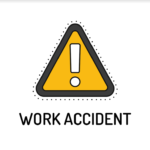Industrial batteries are more reliable and rugged than ordinary batteries. As a result, they can survive long-term use in several challenging environments where it could be difficult to access the battery. Examples of use include scientific instruments, medical devices and equipment, underwater seismic measuring tools, and equipment that monitor bridges’ structural stress.
These batteries are indispensable to many industries. But because they produce an electrical charge, they could threaten your safety. So, it is vital to know how to handle and maintain them properly.
Precautions when handling batteries
Industrial batteries are larger, heavier, and more compact. While the manufacturer ensures that industrial batteries are safe, you should still consider that mishandling batteries could cause severe and large-scale accidents. Battery factories provide safety procedures for moving and handling batteries. Follow them and consider these precautions to avoid accidents.
- Avoid any metal contact with the battery. This includes hoist chains, metal hooks, belt buckles, watches, and jewellery. Metal is an electricity conductor. Thus, touching a metal object exposed to the battery risks electrocution.
- It is dangerous to hand-guide industrial batteries during the moving or lifting process. If you do so, you will be in danger because the battery could shift or drop. In addition, you could suffer from electric shock or touch battery acid, which is corrosive and could lead to severe battery acid burns.
- Only use the recommended lifting equipment when lifting industrial batteries. The lifting equipment must fit the battery’s weight to prevent damage to the equipment or the battery itself.
- Wear protective clothing when handling batteries. This includes hard hats, protective eyewear, and heavy-duty gloves.
Industrial battery maintenance tips
Even if industrial batteries are for long-term use, they need proper maintenance. For one, excessive cold or heat can affect its performance. Therefore, secure them when there are extreme weather disturbances so they can continue to supply the power that the tool or equipment needs. When it is time to replace them, you can contact a trusted industrial battery supply firm to ensure that you get the correct type of high-quality industrial battery.
Your operations will run more smoothly if you practice proper equipment and industrial battery maintenance. This will ensure that your company remains productive, safe, and efficient. An industrial battery is typically serviced every three to six months, but the most critical is to maintain the battery’s water level.
- Before the maintenance procedures, ensure that the area has adequate ventilation and the staff wears protective equipment.
- Ensure that the top of the battery is dry and clean.
- When connecting or disconnecting to the battery, turn off the chargers.
- Only trained and certified technicians should maintain the batteries, mainly when checking and topping electrolyte levels. Ensure that you only remove the battery cap when refilling it. Put the cap back on afterwards so that you will not forget.
- When charging the battery, ensure that you only use the manufacturer-specified charger. Follow the instructions strictly. Fully recharge the battery after each work cycle to extend its life.
Ensure regular maintenance to extend the life of your industrial batteries. For safety concerns, train your technicians on the proper handling of the batteries.








